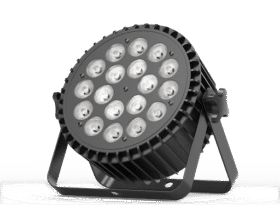Measuring ROI with Project Management Tools
Measuring return on investment (ROI) is crucial for assessing the effectiveness of marketing efforts, and project management (PM) tools play a pivotal role in this process. By leveraging PM tools, marketers can enhance their ability to track and optimise ROI across various campaigns and initiatives.
Project management software provides a centralised platform for capturing and analysing performance metrics, essential for ROI analysis. These tools facilitate detailed budget tracking, ensuring expenditures align with expected outcomes and identifying areas for cost-effectiveness improvements. PM software enables teams to optimise workflows and enhance productivity through efficient resource allocation and time management features, directly impacting ROI.
Data analytics integrated within PM tools offer deep insights into project tracking and performance trends. This analytical approach enables stakeholders to use current data for informed decision-making, pinpointing effective tactics and areas for optimisation to enhance ROI. Financial reporting capabilities within PM software streamline the process of presenting ROI metrics to stakeholders, demonstrating the tangible value of marketing investments.
PM tools enhance stakeholder engagement by fostering transparent communication and collaboration. This ensures alignment on strategic goals and continuous improvement efforts that positively influence ROI over time. Strategic planning is facilitated as PM tools allow for agile methodologies, enabling quick adaptations to market shifts and optimising campaign strategies for better ROI outcomes.
Integrating PM tools in marketing streamlines operations and elevates the ability to measure and improve ROI effectively. By focusing on performance metrics, budget tracking, resource allocation, and stakeholder engagement, marketers can leverage PM tools to achieve higher returns on their marketing investments, driving sustainable business growth in a competitive landscape.
Enhancing Marketing Efficiency
The marketing landscape thrives on innovation, but without a foundation of efficiency, even the most creative campaigns can struggle to deliver a strong return on investment (ROI). Here’s how to streamline your marketing processes, transforming them from scattered efforts into a well-oiled machine that maximises ROI.
Marketing is rife with repetitive tasks, from scheduling social media posts to generating reports. Automation tools become your secret weapon, freeing up valuable time and resources for strategic endeavours. Imagine scheduling social media content for the entire month in one go or generating automated reports that analyse campaign performance and identify areas for improvement.
By leveraging automation, marketing teams can streamline processes and dedicate more time to crafting compelling content and executing winning strategies—activities that directly impact marketing ROI.
Marketing success often hinges on seamless collaboration between various teams – from content creators and social media specialists to designers and data analysts. Breaking down departmental silos becomes crucial for streamlined marketing processes and a maximised ROI.
Imagine a central platform where teams can share ideas, brainstorm strategies, and track project progress in real time. This collaborative approach ensures everyone is aligned with campaign goals and fosters a shared focus on achieving a positive marketing ROI.
Streamlining marketing processes extends beyond simply completing tasks. Integrating key performance indicators (KPIs) into your workflow allows you to measure progress and continuously optimise campaigns for maximum impact.
The marketing ROI dashboards integrated into your project management tools enable you to analyse data, pinpoint improvement opportunities, and adapt strategies swiftly. This continuous monitoring and optimisation ensures your marketing efforts consistently deliver the desired results and maximise ROI.
By embracing these strategies – automation, data-driven content planning, fostered collaboration, and continuous improvement – marketing teams can transform their processes from scattered efforts into well-coordinated machines. This optimisation doesn’t just save time and resources; it ensures your marketing efforts consistently deliver a strong return on investment, propelling your brand towards long-term success.
Optimising Budget Allocation
Optimising budget allocation is critical to effective marketing management and is essential for maximising ROI and achieving strategic objectives. Marketers can use data-driven insights and strategic planning facilitated by project management tools to allocate their resources efficiently across various campaigns and initiatives.
Project management tools with robust financial reporting capabilities are pivotal in this process. They provide clear visibility into expenditure trends and their impact on profitability, enabling marketers to conduct thorough ROI analyses and optimise budget allocations accordingly. By identifying high-performing channels and campaigns, teams can allocate resources where they yield the highest returns.
Aligning expenditures with strategic goals is another crucial aspect facilitated by project management tools. Agile methodologies within these frameworks allow teams to dynamically prioritise initiatives based on market dynamics and customer feedback, ensuring resources are allocated effectively to capitalise on emerging opportunities.
Implementing cost-effective measures is essential. Project management tools that support budget tracking and cost management enable real-time spending monitoring. This capability helps teams identify areas for optimisation and potential savings, ensuring budgets are maximised without compromising quality.
Collaboration and communication are also critical in optimising budget allocation. Project management platforms foster transparency and stakeholder engagement, allowing teams to collectively align on budgetary priorities and make informed decisions. This collaborative approach ensures comprehensive data and strategic consensus support budget allocation decisions.
Optimising budget allocation through project management tools empowers marketers to achieve greater efficiency, maximise resource utilisation, and drive sustainable growth in a competitive market environment.
Tracking Campaign Performance with Project Management Tools for a Clearer ROI
The world of marketing campaigns can resemble a labyrinth – bustling with activity, yet the path to success often remains unclear. But fret not, marketing mavericks! By diligently tracking campaign performance within your project management tools, you can illuminate the path towards a maximised marketing ROI (Return on Investment).
Imagine navigating a maze blindfolded. Now, picture a detailed map readily accessible within your project management tool, highlighting dead ends and the optimal route to the exit. Key performance indicators (KPIs) are your map within the marketing campaign labyrinth. These metrics, like website traffic, conversion rates, and social media engagement, illuminate valuable insights into campaign effectiveness directly within your project management dashboard.
This data reveals a potential content gap, empowering you to adjust your strategy and create targeted calls to action directly within your project management tool. By monitoring relevant metrics and utilising the visual features of project management tools, marketing teams can pinpoint areas needing enhancement and refine campaigns promptly, ensuring they achieve a favourable marketing ROI.
The marketing landscape is a dynamic ecosystem, and what works today might not resonate tomorrow. A/B testing becomes your compass within this ever-changing environment, and your project management tools become these experiments’ launchpads.
A/B testing functionalities allow you to experiment with various creative elements and messaging, identifying what resonates most with your target audience.
In today’s multi-channel marketing landscape, attributing conversions to a single touchpoint can be complex. Attribution modelling becomes your flashlight, illuminating a customer’s path towards conversion, all within the centralised view of your project management tools.
Project management tools with robust reporting functionalities can help you understand each touchpoint’s role in the customer journey, ensuring credit is given where due and marketing budgets are allocated strategically for maximised ROI.
By embracing these strategies – tracking key metrics within project management tools, leveraging A/B testing functionalities, and implementing attribution modelling – marketing teams can transform the labyrinth of campaign performance into a clear and well-lit path.
Read Also:- Marketing Ideas
Frequently Asked Questions
How do Project Management tools contribute to measuring ROI in marketing?
Project Management tools provide comprehensive performance metrics and financial reporting capabilities, essential for tracking and analysing ROI across marketing campaigns. They facilitate efficient resource allocation and budget tracking to ensure expenditures align with expected outcomes.
What role does data analytics play in ROI measurement with PM tools?
Integrated data analytics within project management tools offer deep insights into project tracking and performance trends. This data-driven approach empowers marketers to make informed decisions based on real-time data, optimising strategies for maximum ROI.
How can project management tools enhance stakeholder engagement for ROI improvement?
Project management tools foster transparent communication and collaboration among stakeholders, ensuring alignment on strategic goals and continuous improvement efforts. This engagement enhances decision-making processes that positively influence ROI outcomes.
Why is strategic planning crucial when using PM tools for ROI analysis?
Strategic planning facilitated by project management tools allows marketers to implement agile methodologies, adapt quickly to market shifts, and optimise campaign strategies. This flexibility ensures resources are effectively allocated to maximise ROI.
What are the benefits of using PM tools for financial reporting in ROI assessment?
PM tools streamline presenting ROI metrics to stakeholders through robust financial reporting capabilities. This enables marketers to demonstrate the tangible value of their investments and justify strategic decisions effectively.
How do PM tools support cost-effectiveness and efficiency in ROI management?
Project management tools help identify areas for optimisation and potential savings by enabling real-time budget tracking and cost management. This capability ensures that marketing budgets are maximised without compromising campaign quality, enhancing overall ROI.











Leave a Reply